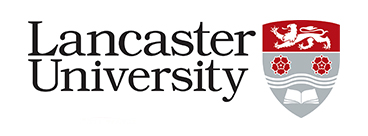2016年认识了一位GRE满分作文的小姐姐,她的作文躺在了我的电脑里。今天是时候,拿出来分享给大家啦!小姐姐是一位神奇的文学学士,6.0的写作成绩单也是闪瞎了我的双眼!一起来看看她在30分钟内竟然可以写出如此长的文章吧!
Issue题
To understand the mostimportant characteristics of a society, one must study its major cities.
Write a response inwhich you discuss the extent to which you agree or disagree with the statementand explain your reasoning for the position you take. In developing andsupporting your position, you should consider ways in which the statement mightor might not hold true and explain how these considerations shape your position.
(正文)
Before discussing the merits or demerits of studying only cities whenlooking at a society, it is important to note that the term society in thiscontext is too large. While social scientists continue to study large societiesdistinguished along ethnic differences, national identity, race, place oforigin, and more, all of these studies fall intothe same trap—they uniformly homogenize large groups of people and tend toerase significant defining factors amongst them. Society cannot be effectively,or even justly, understood on such a scale. Indeed, the premise of this studyalready appears to assume a ‘national’ society as it looks to understand itscharacteristics from ‘cities’, a term usually associated with nationalgroupings as it is a unit that makes up a nation. It is this assumption thatwill inform the rest of this essay. However, at the very outset, it isimportant to know that before undertaking such a project, the scale should bedramatically reduced—each of the ‘cities’ in the proposed study could well behome to hundreds of different societies that get erased when homogenized into anational social group.
My argument moving forward with the proposed issue is that studyingcities alone will not enable researchers to determine any characteristics,significant or otherwise, of a larger society divided along national lines.Now, this does not mean that cities are unimportant or can be ignored. They aresignificant cultural, economic, and social centersthat offer large populations, diverse cultural structures from concert halls tocinema theaters, and a globalized stagewhere interactions between so-called‘native’ and ‘global’ forces are more pronounced. In India, it is a good ideato look to Mumbai in order to understand “Indian” society. The city has apopulation that exceeds 8 million people, giving social scientists access to a samplesize that will produce more verifiable results. In addition to a large populationbeing research friendly, it also offers acloser look at a diverse array of micro-cultures and societies. For instance,researchers are likely to be able to study both authentic Marathi culture aswell as the more globalized “Bombiya”culture in Mumbai simultaneously, something impossible in smaller towns. Ofcourse, cities also form their own distinct social structures different fromother cities in the same country due to the diversity they contain.
Societies are also shaped by economic drivers, and cities are usuallythe hubs of many economies. In the United States, New York, and San Francisco offer the opportunity to look at how wealthcreation through financial and tech markets respectively affect populations.More importantly, the wealth or lack thereof generated in these cities ripplesout to affect smaller towns, villages, and hamlets, making the study of thesecities even more significant.
In term of culture, cities offer stages for cultural expression thatmany smaller towns do not. Musicians flock to Vienna and London to produceclassical music because both cities offer them a global stage. The same artistsare consequently unlikely to flock to Devon or Hemel Hampstead, smaller citiesthough they are because the same stage isnot available. Therefore, cities are likely to be the place where the best ofthe best of any cultural artifactproduced by a nation can be found.
In terms of globalization, cities are likely to produce moreinteractions to study. Cities become globalized first, before towns andvillages, though the effects of globalization may visible in the latter two. So,even though a city might see social changes like an increase in people wearingjeans, smaller towns are unlikely to see them as quickly even though they arebeing affected economically—perhaps the town has recently had to shut down its soap factory because imported soap ischeaper. Moreover, cities react to globalization more rapidly than smallertowns, simply because economic and political engines run quickly in cities andslower elsewhere.
Politics is yet another realm where cities offer great insight, for mostpolitical machinery is situated in cities. Take Washington DC, New Delhi,Taipei, London, Paris, Berlin, Istanbul, Cape Town, Rio, and more—all cities aswell political capitals of one sort or another. The political apparatus in eachof these cities is the apparatus of the entire country in a microcosm.Representatives fight for their regions in the capital, but rarely in otherregions. Therefore, cities offer more political insight more easily.
However, even with all these relative benefits, studying only cities tounderstand societies can lead to an incorrect understanding for a few reasons.
First, most countries, especially developing nations, have a markedurban-rural divide. This means that cities and rural areas rarely share morecharacteristics than national identity and perhaps some political similarities.For instance, communities in the Salem district of Tamil Nadu in India speakonly Tamil, are not prone to ‘Western Influences’ very much, and are relativelymore conservative and significantly less affluent than their counterparts in thecity of the region, Chennai. Folks in Chennai, however, are likely to speaklanguages other than Tamil, indulge more in “western” culture, and have greatereconomic mobility. Education is likely to be more normalized in Chennai, for example, than a village in the Salem district.If only cities are studied, important differenced like the one articulatedabove would be neglected, and the findings produced would ultimately beincorrect. Urban-rural divides exist everywhere, even in developed nations likethe U.S.A., where the social lexicon of agentleman from a small town in rural Georgia is likely to be vastlydifferent than the one possessed by a gentleman of similar age in New YorkCity. Political leanings, economic drivers, and even levels of diversity vary wildlybetween cities and rural spaces, making it imperative to study the latter inaddition to the former to understand a society.
The second significant reason that cities should not be studied inisolation is that towns and rural spaces often offer researchers a more“authentic” social structure. Be it tribes that live primarily in the jungle inParaguay, or nomadic groups in the mountains of Afghanistan, rural spacesprovide more of an idea of what culture and life used to be like before thetide of nationalism, followed closely by globalization, affected a region.Rural spaces offer more historical evidence to study the evolution ofsocieties, and ignoring this would lead to unbalanced results.
Moreover, rural societies also demonstrate, sometimes heartbreakingly,what globalization does to local customs and people, as increasing economicinsecurity and inequality tends to either make people migrate or die outcompletely. For instance, hundreds of migrants flocked to Bombay in the early1900s looking for work, sometimes abandoning entire villages, dialects, cultures,and more to find work in the city, especially because working in Bombay inthose days meant assimilating. Therefore, the study of these non-urban spacesis critical to understand the impact of globalization on smaller, more ‘native’social groups.
While studying cities to understand societies is clearly a beneficialpursuit, it can lead to incorrect results if pursued in isolation to the studyof rural and other non-urban spaces within a country. If the impossible task ofquantifying or qualifying the characteristics of a society had to take place,then let it not be blind to the data available in rural spaces addition to thedata available readily in cities.(1218 words)



















